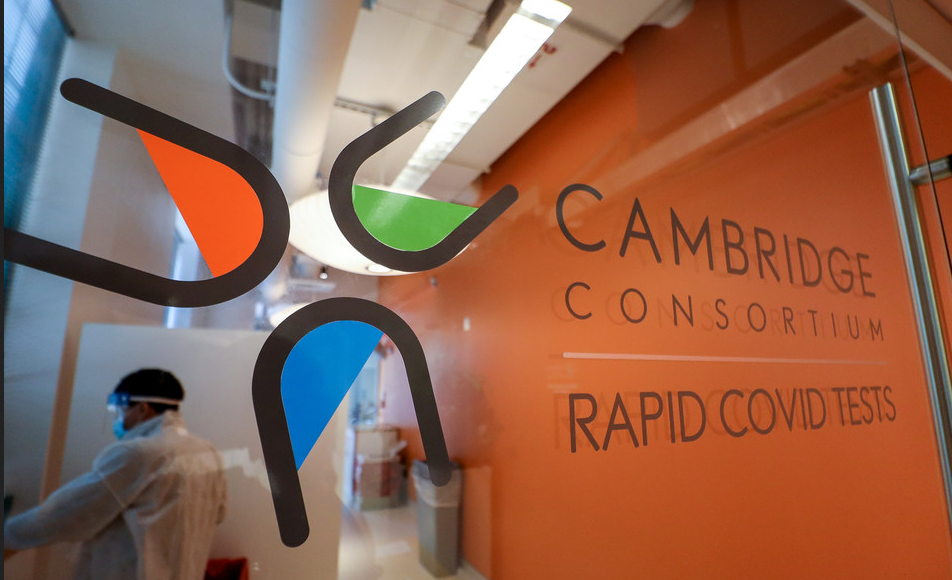LabCentral, the first-of-its-kind shared laboratory space designed as a launchpad for high-potential biotech startups, today announced it has partnered with BioLabs and E25Bio to launch the Cambridge Consortium for Rapid COVID-19 Tests (CCRCT).
The goal of this new testing initiative is to combine resources and validate fast, affordable diagnostic assays to provide SARS-CoV-2 screening for asymptomatic populations as part of a strategy for safely returning to work, school or other aspects of daily life.
The current gold standard for diagnosis of a SARS-CoV-2 infection is a real time-polymerase chain reaction (RT-PCR). This diagnostic method is time-consuming and dependent on expensive instrumentation and trained technicians to perform both the sample collection and assay. While PCR results may be available within 24 hours, turnaround times can sometimes take several days to a week.
The CCRCT is conducting a clinical trial to validate a novel SARS-CoV-2 Direct Antigen Rapid Test, known as “DART.” Developed by LabCentral alumnus E25Bio, a pioneer in rapid diagnostic tests for fever viruses, DART is a self-administered, at-home test that can produce results within 15 minutes.
DART is an immunoassay for qualitative detection of SARS-CoV-2 viral particles or secreted protein in anterior nasal swabs or saliva samples. The ease and functionality of DART is similar to a pregnancy test with a “control” line indicating that the test is working, and a second “test” line showing the presence of SARS-CoV-2 viral particles in the sample collected.
“We believe the key to controlling the novel Coronavirus pandemic, both locally and worldwide, hinges upon affordable, reliable and widespread testing. And large-scale testing utilizing specialized PCR equipment and highly-trained personnel simply isn’t sustainable,” said LabCentral and BioLabs Founder Johannes Fruehauf.
“Our goal with the CCRCT is to eliminate unacceptable wait times for both testing and results seen with PCR testing, and achieve test results in real-time, at home, at school or at a business venue, all at a very low price point. Once we are able to provide frequent testing to large clusters of the population, we can detect and isolate new positive cases before the virus spreads and allow a return to as close to normal operations as possible.” – BusinessNewsAsia.com
